A Muckraking Life, InterruptedPosted on February 4, 2015 by Daniel Hopsicker
Ruslan Tsarni, who became a daily fixture on cable and network news when his nephews were accused in the Boston attack, is also—and very likely not coincidentally—an unacknowledged spook with ties to the CIA.
What we know about “Uncle Ruslan”reveals a man whose world is filled with billionaire bankers, England’s Prince Andrew, Chechen terrorists, and what a Judge in London called an “international network of criminals.”
But the truly disquieting thing about the spooked-up Tsarni is that the mainstream media has remained uniformly silent about something which must be an open secret in Washington, D.C.
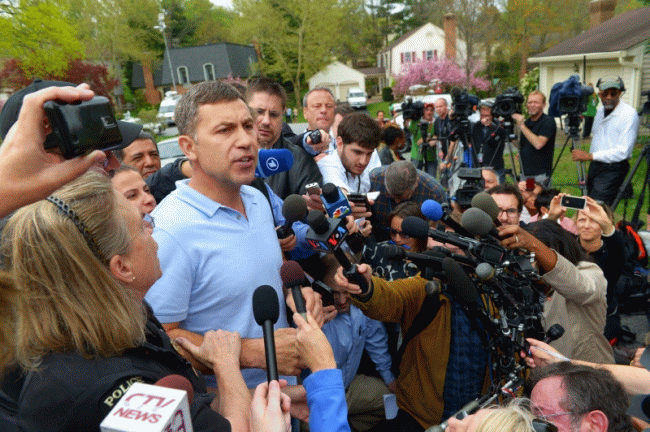
After almost four months of silence, last week I published a 2400-word initial account pf what’s been learned about Tsarni. On a personal note, I figured the astonishing news would let my four-month absence pass unnoticed. I was wrong. In today’s America, where major scandals are routine, even jaw-dropping disclosures don’t pack much of a wallop. And that—the personal note—is what this story is about.
Billionaire bankers, England’s Prince Andrew, & Ruslan Tsarni
People couldn’t get enough of “Uncle Ruslan,” who heaped ridicule on his two “loser” nephews, one dead, one barely alive. Graham Fuller, a former top Reagan-era CIA official, shielded Tsarni’s real identity in an interview with a hand-picked reporter.
While Tsarni was trash-talking his nephews on television, he was simultaneously up to his hubcaps in international financial intrigue over six billion dollars discovered “missing” from a Kazakh bank. Uncle Ruslan was suspected of helping launder the missing cash to ensure it stayed missing.
There were also hints that a few million dollars of the loot had been shoveled (through the sale of a dilapidated estate for millions more than it was worth) to a personage at the heart of a current highly-publicized scandal…
One can perhaps take comfort knowing England’s Prince Andrew hadn’t spent all his time in orgies with underage girls on disgraced billionaire banker Jeffrey Epstein’s airliner and yacht might provide some comfort to some; he’d also been mucking about with associates of Ruslan Tsarni, men called by the English judge on the case an “international network of criminals.”
Only readers of The MadCow Morning News know anything about any of this.
Note to Self: Don’t be “Danny Downer”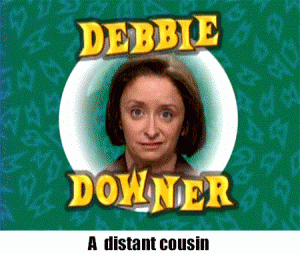
So that’s my little parlor trick; my
area, as they say in Hollywood; my
schtick.
Eyeball a dodgy situation, poke around for the thinly-disguised source of the plunder and pillage—and there’s
always plunder and pillage—then disclose the worm at the center of the apple in a headline-grabbing way, knowing the story will be ignored anyway.
Then, afterwards, do your best not to get discouraged. Tell yourself nobody likes a Danny Downer. And know that the scoop will
always be assiduously ignored in the mainstream press or,
as described last week, ascribed only to “a story on the internet.”
“Look on the bright side,” a longtime NSA operative once said, after hearing me grouse about being unable to surface some particularly shocking piece of information. “At least they let you live.”
Small comfort, maybe. But, as I was shortly to learn, small comfort is better than none.
“He like to died!”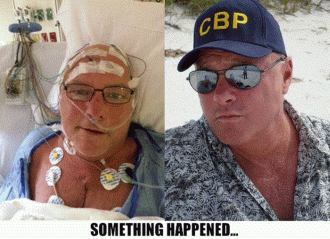
Along with a few words of praise (“Nice find Daniel!”) reaction to last week’s story leaned heavily towards either an expression of concern or a pointed question. It was either “Where have you been?” or, “Daniel, I was getting worried that we’d lost you!” One correspondent offered a cheery “Great to see you back in action!” as if I’d returned off Team Muckraker’s Injured Reserve.
In the interest of transparency, let me explain what happened: Last Fall, in early October, I nearly died. Or, as they say in the South, “I liked to died.”
Months earlier, I’d noticed some shortness of breath at a speaking engagement in Los Angeles, been diagnosed with bronchitis, and prescribed antibiotics. Whatever was causing the worrisome shortness of breath, I assumed, was lung-related.
It wasn’t. During a second visit to the doctor for more antibiotics, he uttered this fateful line, “I want you to get an EKG.”

Long story short, in early October my younger brother (we both live with our aging-yet-ageless Mom) drove me to the Emergency Room at Venice Regional Hospital. When the triage nurse at the admittance desk asked why I was there, I replied, truthfully, “Because I can’t breath.”
It was as if someone had pulled the fire alarm. I’d apparently just said the magic words and was swiftly dragged to the front of the line with what felt like unseemly haste. Minutes after shambling through the Emergency Room’s sliding-glass door, I’d been admitted, placed on a gurney, and wheeled down a long featureless corridor to the cardiac care unit, where one week later I underwent open heart surgery to replace a faulty aortic valve..
Breathing: It’s simple. In. Out. Repeat.
Later I began to become dimly aware of what a near thing it had been. I had (literally) not had a moment to lose, the surgeon told me later, when he swung by on his post-op rounds.
When the operation began, they discovered my heart was weaker than they’d thought, he told me, and it had inhibited the anesthesiologist’s ability to sedate me, out of fear it might stop my heart.
Whoa!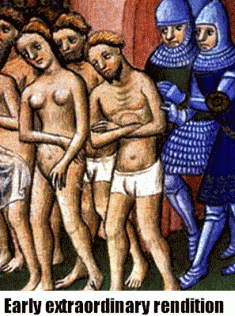
Coincidentally, the date of the operation, October 13th, is famous as the date of the Western World’s first extraordinary rendition. On Friday the 13th of October, 1307, hundreds of Knights Templar were arrested in France, then moved to secret locations (not on CIA planes), and tortured into confessions of heresy. Ever since, or so the story goes, Friday the 13th is considered an unlucky day.
But the 13th of October was not an unlucky day for me. (For one thing, it was on a
Monday.) Today, almost four months later, I am enormously grateful and humbled just to be alive, feel healthy, even fairly vigorous.
Of course, the experience changed me. Typically the imminent prospect of death focuses the mind on seldom-asked questions. Like, what really matters, or, more precisely, what really matters to
me?“In a New York minute, everything can change”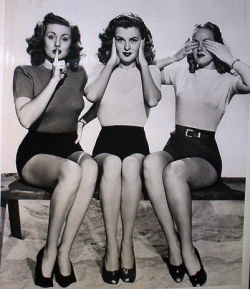
For the past dozen years I’ve investigated stories too hot for the Oatmeal Journalism which dominates America’s news-cycles. Forgive me for saying it, but I’ve gotten pretty good at it.
Now I’ve been blessed with a choice: During the time remaining to me, do I want to continue? Or pursue something altogether different? (I don’t know why, but sheep-ranching in the Australian Outback is the image which comes to mind.)
Didn’t I realize the inherent absurdity of believing my feeble efforts would ever change anything?

Did I really envision forcing the same Government that allows certain military-industrial complex-friendly figures to handle the import of cocaine and heroin turn around and legalize it, while freeing a million people in American penitentiaries for selling small amounts of what they’re bringing in to the U.S. by the ton?
Would my puny efforts ever get to the bottom of the collusion between corrupt Saudi-friendly officials in Florida and the 9/11 hijackers? Would they expose secret agreements whose beneficiaries most definitely did not include the American middle class taxpayers who fund their traveling circus?
Didn’t I know that if demonstrations and protest marches accomplished anything, they’d have already been banned?
“You can’t arrest me. I’m with the CIA.”
Nothing I’ve unearthed or exposed—from the CIA’s continuing role in the international drug trade to the FBI terror alert in the Pacific for Wolfgang Bohringer, the German pilot who’d been Mohamed Atta’s best buddy in Florida—has had the slightest impact. (You might cite the FBI manhunt for Bohringer, but after the first words out of his mouth when they caught up with him, they let him go.
According to someone who was there at the time, and happened to overhear a telephone conversation between an agent from the New York Joint Terrorism Task Force(JTTF) and someone from the FBI who’d caught him, what Bohringer had said was, “You can’t arrest me. I’m with the CIA.”
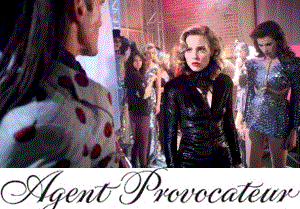
And even when evidence I uncovered
did momentarily threaten to break through— the persistent investigation into the the flight schools in Venice Florida, for example, that were the unexamined interface between the U.S. and the terrorists, the only result was a a brief seizure, on the Internet, a spasm of
agent provocateur activity that is obvious in retrospect, but was baffling at the time.
Face facts. Why bother?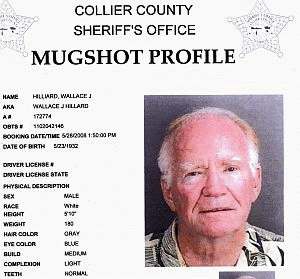
Take the stunning evidence proving that just three weeks after Mohamed Atta arrived to attend flight school in Venice Florida, the Lear jet belonging to the owner of the flight school was busted in Orlando carrying 43 pounds of heroin, what’s known as “heavy weight.”
And before you could ask, “Is this just coincidence?” there were people emerging who seemed desperately eager to pitch their particular variation of the classically-bizarre conspiracy theory to the puzzled masses. And when one was discredited, another would pop up, and each was more unlikely than the last.
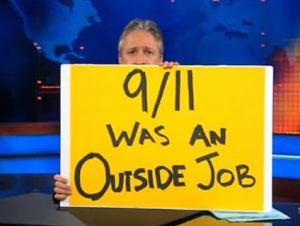
A retired professor of theology at a conservative bible college in California, a succession of professors at Red State Universities with theories that never led anywhere… which was the
point. The
well-funded point. They accomplished nothing except to make the half-baked “official story” of the 9/11 attack sound almost reasonable.
Almost.It was classic misdirection, just like after the JFK assassination, when the investigation was focused on Dallas, while the conspiracy had been in New Orleans. Note to self: Stop using writer Thomas Pynchon’s quote just as soon as it ceases to be relevant: “If they can get you to ask the wrong questions, they don’t have to worry about the answers.”
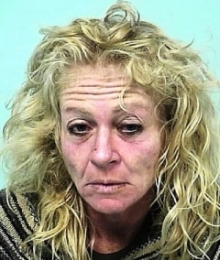
I’m not of a particularly philosophical bent. But everything got very
“Think on These Things-y” for a while. It was as if I were reliving during my pseudo-hippie days, when The Eagles lived in Laurel Canyon, and you could see Neil Young at Royce Hall, back when I could get ‘stoked’ by reading a book bought at the Bodhi Tree, or trucking up to Ojai to sit under a 200-year old oak tree and listen to J Krishnamurti talk.
“What happened to you was an event we like to call the ‘perceived end of middle age.’ It acts, we hypothesize, as a general summary of the subjective rate of ageing. The age at which your own middle age ends predicts your future health outcomes.”
What I learned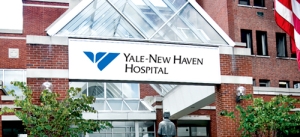
Anyone who watches the news know that we live in a world filled with rape and plunder, war and starvation, while ever-more scary diseases rampage across the globe. Things are going to hell in a handbasket, right?
During my time in the hospital I learned that wasn’t true. Or that it was only part of the truth. Back in the 70’s, I’d watched my father undergo open-heart surgery twice. The first was at Yale New Haven Hospital; he had one of the early bypass surgeries, when they were still something of a novelty. Then he had basically the same operation again five years later.
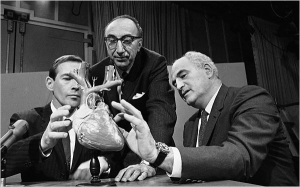
What I saw was: it hurt. A lot. But because of how far medicine has advanced, just in this one medical procedure, and in just 40 years, my experience was nothing like as hard as my dad’s had been. It was astonishing. There weren’t just improvements in care; there was exponential improvement.
It made me realize the same thing is true in so many areas of our lives that we’ve lost count. Maybe what we’ve lost is our ability to be dazzled when we realize what a steep learning curve humanity has been on for the past three of four decades, which makes this is, in many ways, a wonderful time to be alive.
Another good thing: I learned, at age 63, that I have no real fear of death. I’d been inducted into enough of life’s mysteries to not feel cheated if “This Was My Time.” Of course, I wanted more; everyone does. But, crucially, I felt more or less at peace, and I concluded that the reason was because, for better or worse, I became the person I was supposed to be. Not my highest best self, but not too damn far off, either.
A sojourn in another world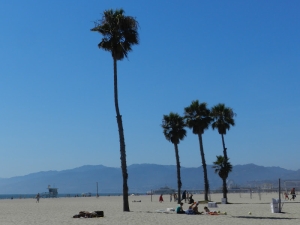
Last October I carefully laid down the various strands of my life. Today I’m finally beginning to pick them back up. Just before entering the hospital, for example, I got a note (through Facebook!) from a friend in Los Angeles I hadn’t spoken with in almost 20 years.
Just seeing her name reminded me of my gloriously footloose days in Southern California, where the weather report always seemed to call for “late night and early morning low clouds and fog along the coast, turning to hazy sunshine by mid-afternoon. A high of 72.”
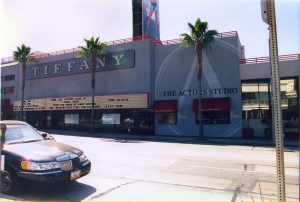
Carol was—
is—an accomplished woman who brightens every room she walks into. Well-placed in Hollywood, she runs a playwriting workshop to ‘give back, I think, from which emerged an instantly-forgettable comedy I wrote that I was lucky enough to watch play all summer at a nifty little theater on Sunset.
After each night’s performance, I would “hang” with the actors at semi-famous places around town. I was the sole writer there, they liked to remind me, privileged to be invited, because “this is an actor’s hang. “
I wrote telling her we’d have to wait to catch up; we’d communicated literally three days before I entered the hospital for what turned out to be open heart surgery. I’d compose a proper note in the next several days. Four months later,
this is that note.Giving up the glamour of sheep-ranching.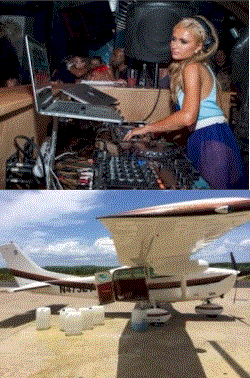
Like I said, I’ve been blessed with a choice: During the time remaining to me, do I continue investigating taboo subject? I had a lot of strands to catch up with.
What happened after a drug plane was found on a private runway at Paris Hilton’s 6000-acre ranch in Costa Rica recently being loaded with 400 kilos of cocaine and
almost $2 million in cash stuffed in plastic bags. Her parents were supposedly there at the ranch when it happened. Did investigators ever bring them in for questioning?
And what’s the latest on the saga of the “
American “mystery plane” busted with 35 kilos of heroin outside Sydney, Australia?
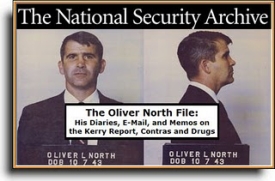
The twin-engine plane was picked up in Punta Gorda at the
Charlotte County Airport, which is to general aviation what the Black Hole of Calcutta is to after-school detention. To get to Australia it flew an amazing two-month long journey, from Florida to Alaska, south across the Pacific to Hawaii, then over to the Phillipines, and on to Australia.
It was piloted by a professional plane mover with a sterling resume: former British Special Forces; former ace Australian military pilot and Commander; Member of the British Empire. Was this the resume of the unlikeliest drug pilot in history? Or one of the likeliest?
Finally, when the plane first rolled off the assembly line 40 years ago,
it belonged to the CIA. Did it still? I don’t know. I want to find that out, too.
Finding stuff out is addictive
Also, what’s happened to
the big DEA investigation into aviation honcho Don Whittington, one of South Florida’s most storied ‘pirates,’ after more than 100 Federal agents from the FBI, the DEA and Homeland Security swooped down on his headquarters at infamous Fort Lauderdale Executive Airport.
Then everyone clammed up. The whole case was sealed.Nothing’s been heard since, no one will say why, and its been mover a year. Why is drug trafficking so often treated as a matter of “grave” national security?
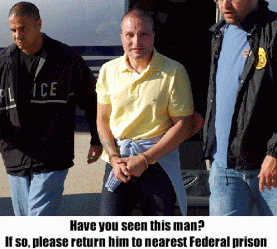
Also, where is major Colombian drug trafficker Juan Carlos Ramirez-Abadia, known as Lollipop, who the DEA said was
the biggest drug cartel boss since Pablo Escobar?
They say he led the world’s biggest drug cartel, exported more than 500 tons of cocaine to the U.S. alone, then was extradited to the U.S., and convicted in Federal Court in New York on charges that normally guarantee a life sentence. Yet the U.S. Bureau of Prisons has no record of him in its system. So where is he? Once again I don’t know.But I’d like to find out.
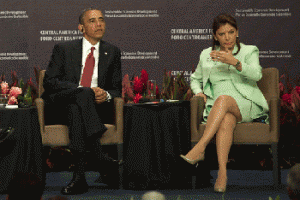
And what happened to
Laura Chinchilla, who was Costa Rica’s President when she was discovered using a drug plane from a major Colombian drug trafficker to fly to Venezuela for the funeral of Hugo Chavez. Was that embarrassing for her? Or what?
There are as-yet unnamed Americans who make more money from drug trafficking than any Mexican drug lord with an AK-47 and bandoliers of ammo strapped cross-ways across his bare chest.
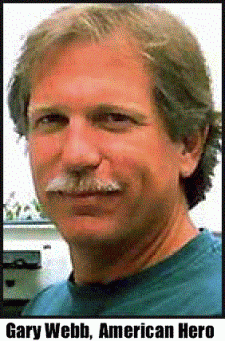
Any mainstream journalist who can count to ten backwards knows that reporting stories on subjects considered taboo is a waste of time, because they will never get air. Because taboos don’t just exist in places like Borneo, and among people in the pictures in National Geographic. They exist
here, too. Right here. Right now.
The real fun, Gary Webb told me once, is in dragging the dead body (the taboo subject) out from under the bed, and then watching what happens. He was right.
I’ve got the best job in the world. It pays less than anything I’ve done since I was twenty-one.



























